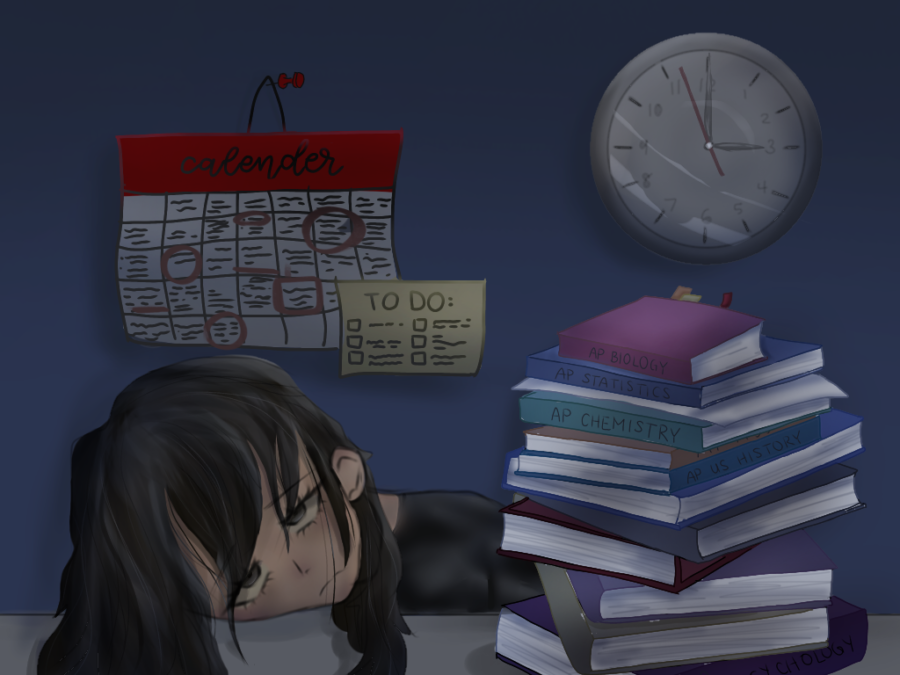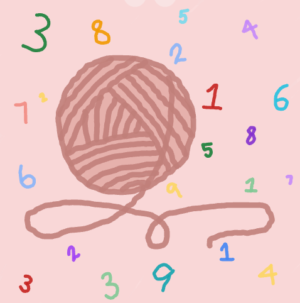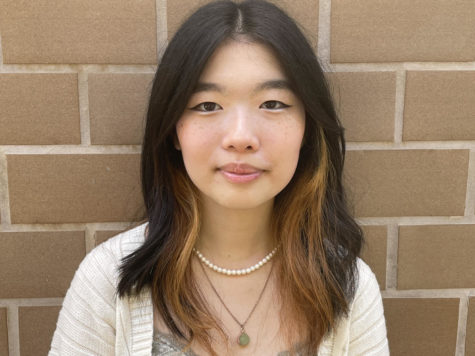To Personify a Statistic: AP’s, Tests and Being Stressed
While being an AP student provides an intimate understanding of a topic, it can also put upon immense amounts of pressure on students.
December 15, 2021
Dear reader,
Let it be known that taking AP classes is actually not my whole personality trait, contrary to what it may sound like in any conversation with me.
I was scrolling through Instagram the other day, as one does when they are procrastinating their homework, and came across something surprising: a video recounting AP or Honors student stereotypes. The video itself was a little too accurate but it was the phrasing that got me — doesn’t everyone take AP or Honors classes? Why is that a specific type of student?
I think that moment, in my fourth year of high school and having finished six AP classes, was the first time it really hit me that the advancement pressure we put on ourselves in this school, this district, isn’t universal. We centralize our high-school experience and memories around school, tying our identity to academics and numbers.
Think about it: AP, or Advanced Placement, classes are college-level courses that high schoolers can take. If these classes were normal for high school students to take at a large scale, they would just be advanced high school courses. But the reality is that in most schools the expectation isn’t to have 73% of students (including freshmen) take at least one AP exam per year, the way it is at DVHS.
Even more so, compared to DVHS’s academics, many relatively selective colleges admit students with an average of about 5 AP courses, with some not even considering more than 5.
Despite this information, this assurance that we don’t have to run ourselves ragged in school, almost none of us heed it. Personally, by the time high school is over, I’ll have taken 11 AP courses, which is both more and less than people I know. I’ve fallen straight in the middle of the ever-pervasive pressures, from wanting to catch up to the students around me to the fear of not being accepted into colleges I want if I’m below the school average.
But why? Is it thanks to living in the Bay Area, full of tech giants and Top 20 colleges that we feel we must get into? Is it thanks to San Ramon’s racial breakdown, where the stereotype of Asians being smart has diffused into our everyday lives, even for those not identifying as Asian? Or is it something else, something new I haven’t considered that is creeping into our society?
(Honestly, maybe it’s population growth at this point. Too many kids and the same number of positions in the world, in college and jobs both. We’ve literally been competing since we were in diapers. Sorry to the baby born next to me, but I’m just built different.)
No matter the cause, that pressure always ends up resulting in sleepless nights and anxiety-filled days, in self-deprecation and constant comparisons, in stress and overwhelming pressure. And what’s worse? We show it off. We take pride in exhaustion and low self-esteem and constantly feeling like we have to catch up to others.
Let that sink in as much as my calculus grade. This was not meant to be ironic; it’s genuinely the first thought that came in my head while writing that phrase. Even while writing a journalism article, I still manage to make fun of my AP grade. Sigh.
We’re socially made to put this pressure on ourselves and others, by institutions we can’t quite fight against (which is college, for most of us). But I think there’s a difference between accepting the pressure and actively encouraging it, and the latter is the path we need to stop taking. Right now, at this moment, there’s very little that can probably be done to reduce AP and Honors stress, because we can’t change the conditions that force us into taking these courses.
And yet, there is something we can control, which is just as slow-going, but at least it’s individually attainable. Dougherty students, I’ll give you a formula so easy to figure it out, deriving ex will seem difficult:
Step 1: Acknowledge that taking these high level courses is, like, meant to be hard (Don’t listen to our icon Elle Woods. It is hard).
Step 2: The fact that you’re taking the risk and putting in the effort to take difficult or college-level courses is enough.
Step 3: Listen to Taylor Swift and calm down.
Yes, we walk into these courses knowing that it’s going to be tough; no one said it’s not. But it doesn’t have to be draining and we don’t need to feel miserable. We don’t need to ignore looking at our grades in the hopes that they’ll magically change. We don’t need to act cagey in front of friends, embarrassed of our scores or schedules.
Instead, we need to stop tying our worth, our happiness, to quantitative measures like AP courses and grades. Our identities and character aren’t defined by how much we pressure ourselves, and instead are defined by our friendships, our passions, our honesty.
I’m not an AP student; I’m just a student taking AP courses. My grades aren’t the way I see myself compared to others; they’re just a number. These thoughts are the dream, but honestly? It’s hard to distance myself from school, the way I’ve seen myself for so many years, without feeling like it’s just an excuse to embrace the senioritis and chill.
Especially now, with finals coming up in a few days, I’m still trying to actually embody these ideas — as I said, it’s pretty hard to reverse a years-old mentality about equating my identity with my academics. But making my APs not half of my conversation topics, enjoying senior year beyond just school and college applications — that’s what the grind is really about, isn’t it?
Feeling weird about life,
Mahika Arya






